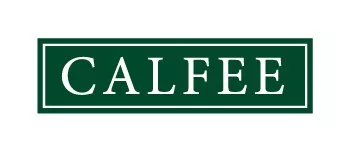- within Government and Public Sector topic(s)
- with readers working within the Automotive and Environment & Waste Management industries
The Supreme Court of Ohio has declined to weigh in – for now – on the issue of whether hackers of a proprietary database have liability under Ohio law. The issue arose in the case of OCLC, Inc. v. Anna's Archive, which was before the Ohio Supreme Court on a request from an Ohio federal court that the Supreme Court answer legal questions that have not yet been definitively addressed by Ohio courts.
Anna's Archive is the world's largest library catalog for accessing pirated works and is operated by a worldwide network of anonymous hackers. In 2022, hackers associated with Anna's Archive began targeting OCLC, a nonprofit company headquartered in Ohio that has created the largest bibliographic catalog in the world. The hackers successfully "harvested" nearly all of OCLC's records and posted them on the Anna's Archives website.
OCLC then filed a lawsuit against the Anna's Archives corporate entity in federal court. OCLC claimed that Anna's Archive's piracy amounted to a breach of contract of OCLC's terms and conditions posted on OCLC's website (a "browserwrap agreement") and constituted other torts under Ohio law. Anna's Archives never formally appeared in the case or defended against the claims OCLC brought against it. When OCLC asked the federal court to impose a default judgment against Anna's Archives, the federal judge balked. Instead, he questioned "whether Ohio law prohibits the data scraping alleged here," and concluded that "[n]o Ohio court has ever applied its law as OCLC would have this Court do" and that granting OCLC relief might be "a drastic expansion of Ohio law."
Having so concluded, the federal court judge invoked a little-used procedure by which a federal court sitting in Ohio can formally request that the Supreme Court of Ohio consider and decide legal issues that have not yet been addressed by Ohio courts. The federal court asked the Supreme Court of Ohio to weigh in on two issues:
- What level of knowledge of browserwrap terms must a website user have for those terms to be enforceable against the website user under Ohio law?
- Whether and under what circumstances data scraping gives rise to tort claims under Ohio law?
In a decision published on October 1, 2025, the Supreme Court of Ohio announced that it had declined to answer the questions presented to it by the federal court. As is usually the case in a situation involving legal questions certified to it by a federal court, the Court did not offer an explanation for its decision to decline the case. However, as it did in the federal court case, Anna's Archive did not appear or make any legal arguments before the Supreme Court of Ohio. The Court may have been hesitant to accept the case and decide legal issues of first impression in Ohio where one of the parties was not actively involved and providing legal arguments for the Court to consider.
The legal issues in this case likely will come before the Supreme Court of Ohio again in the future. However, in the interim, the law in Ohio on these piracy issues will remain unsettled, and cases against online thieves and hackers will continue to be difficult to pursue.
The content of this article is intended to provide a general guide to the subject matter. Specialist advice should be sought about your specific circumstances.


